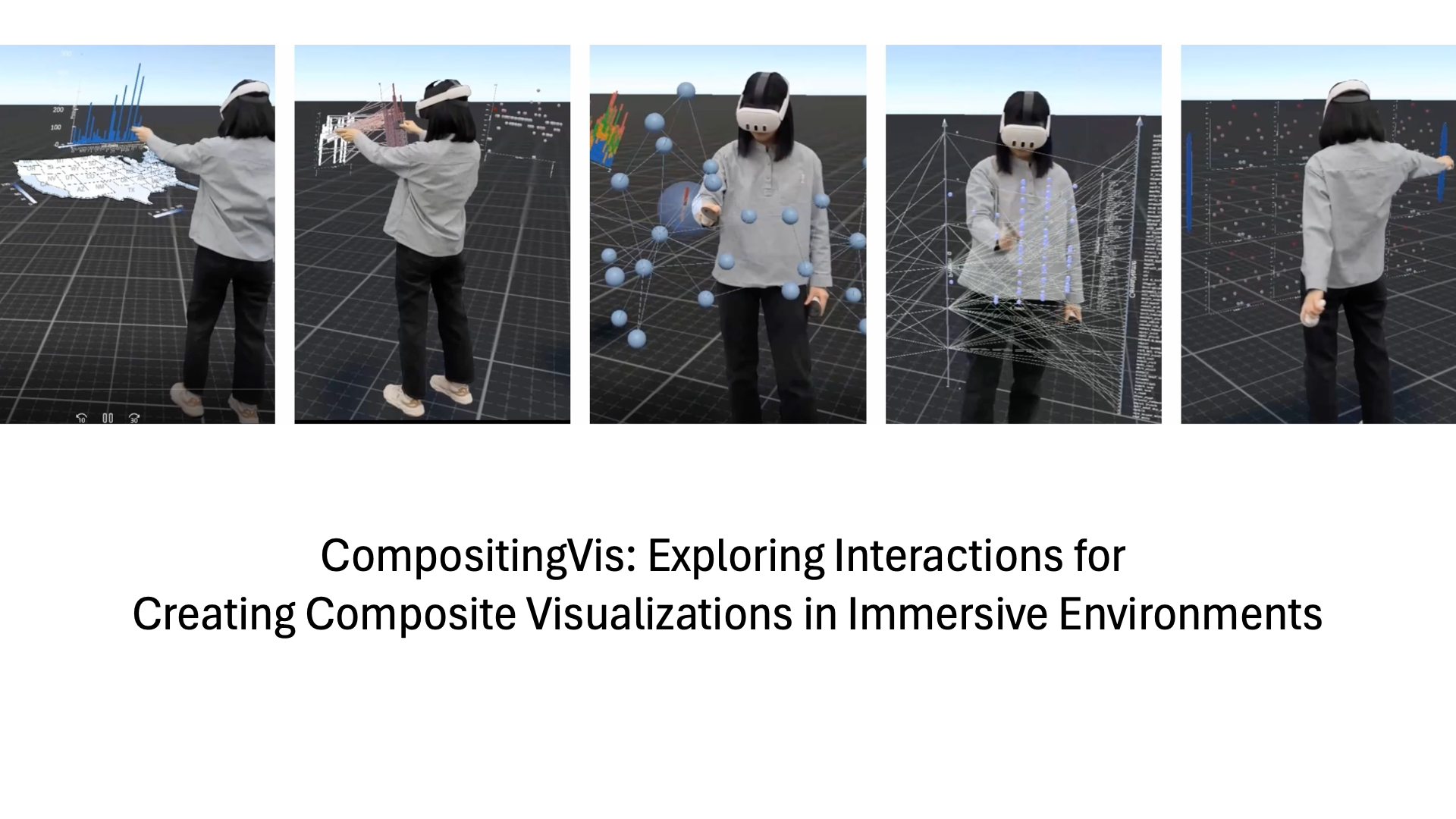CompositingVis: Exploring Interaction for Creating Composite Visualizations in Immersive Environments
Qian Zhu - The Hong Kong University of Science and Technology, Hong Kong, China. The Hong Kong University of Science and Technology, Hong Kong, China
Tao Lu - Georgia Institute of Technology, Atlanta, United States. Georgia Institute of Technology, Atlanta, United States
Shunan Guo - Adobe Research, San Jose, United States. Adobe Research, San Jose, United States
Xiaojuan Ma - Hong Kong University of Science and Technology, Hong Kong, Hong Kong. Hong Kong University of Science and Technology, Hong Kong, Hong Kong
Yalong Yang - Georgia Institute of Technology, Atlanta, United States. Georgia Institute of Technology, Atlanta, United States
Screen-reader Accessible PDF
Download preprint PDF
Room: Bayshore II
2024-10-16T12:30:00ZGMT-0600Change your timezone on the schedule page
2024-10-16T12:30:00Z

Fast forward
Full Video
Keywords
Composite Visualization, Immersive Analytics, Embodied Interaction
Abstract
Composite visualization represents a widely embraced design that combines multiple visual representations to create an integrated view.However, the traditional approach of creating composite visualizations in immersive environments typically occurs asynchronously outside of the immersive space and is carried out by experienced experts.In this work, we aim to empower users to participate in the creation of composite visualization within immersive environments through embodied interactions.This could provide a flexible and fluid experience with immersive visualization and has the potential to facilitate understanding of the relationship between visualization views. We begin with developing a design space of embodied interactions to create various types of composite visualizations with the consideration of data relationships. Drawing inspiration from people's natural experience of manipulating physical objects, we design interactions based on the combination of 3D manipulations in immersive environments. Building upon the design space, we present a series of case studies showcasing the interaction to create different kinds of composite visualizations in virtual reality.Subsequently, we conduct a user study to evaluate the usability of the derived interaction techniques and user experience of creating composite visualizations through embodied interactions.We find that empowering users to participate in composite visualizations through embodied interactions enables them to flexibly leverage different visualization views for understanding and communicating the relationships between different views, which underscores the potential of several future application scenarios.